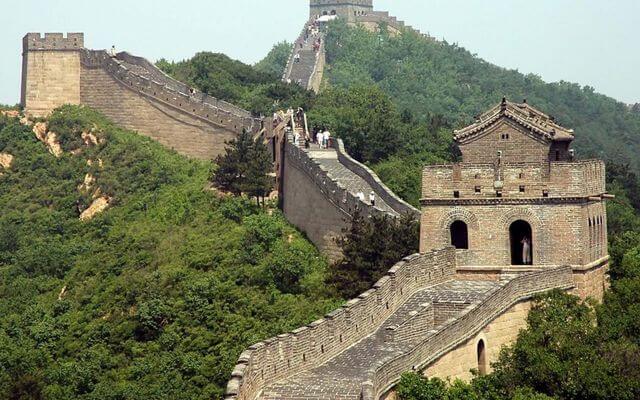Historically, the term “China” actually developed in stages.

The first stage is roughly the ancient times, and the word it means the capital and the places around the capital. The word “China” first appeared after Zhou Wu Wang said a sentence called “Zhaizi China” after he defeated Zhou. It means that I have already occupied China. This “China” refers to Luoyang City, which is located in the world. Let’s look at the wording of the word “Kuni” first. It is a circle of city walls with a samurai in the middle, so it means a fortified castle, which is equivalent to the fortified castle in the Warring States period in Japan. , A place guarded by samurai is called a “country.”
Zhou people were feudal lords, divided into nationals and savages. The Chinese are the people who live in the city wall. Zhou Gong will designate someone as a prince. He took the colonial group to the east to build a city wall. The people inside the city wall are called Chinese people, that is, the military colonial group sent by Zhou people to the east. ; For example, when Jiang Taigong, the emperor of Zhou Dynasty, went to the Qi state, he asked Jiang Taigong to take a group of people to colonize. Outside the city wall, there are the Tu people and the aborigines, they are called wild people. The difference between a Chinese and a savage is in the circle of city walls. Inside the city walls are like citizens of ancient Mayan city-states or ancient Greek city-states, they are members of this political community; outside the city walls are savages, they are Turkish and outsiders. This is the difference between the country and the wild. “Country” is a fortified castle, and the people within the fortified castle are part of the feudal system. Therefore, “country” is the castle, and “China” is the castle in the world, specifically Luoyang City. At most, including the circle around Luoyang, this is “China.” Apart from “China”, fortified castles in other places are also called “country”. Building a castle by other princes or anyone is called “Jianguo”. This is the first definition of “China”, the strictest and narrowest definition.
After the Pre-Qin Dynasty, especially after the Han and Wei Dynasties, “China” added a second meaning. It is similar to what we now call the Central Plains, that is, this piece of land with Henan as the center and mainly the North China Plain. The south outside the Yangtze River or the north and the west outside the pass are not part of “China.” For example, in the Three Kingdoms era, “China” was a concept opposed to “Jiangdong”. When Wei Wendi Cao Pi talked about how the Wu people were, they would say “what are the talents in China and what are the talents in the Wu people.” Zhang Yan of the Three Kingdoms also said when he evaluated Zhuge Liang’s Northern Expedition, “Zhuge Liang is really amazing. Kong Ming won’t disarm when he hit Liang Yong, but China won’t let go of the saddle.” “China” here refers to North China centered on Luoyang, Xuchang, and Yecheng. The opposite “Bashu” and “Jiangdong” are not “China.” This statement has been maintained until the Southern and Northern Dynasties. For example, when Chen Qingzhi or other Southern Jiankang people went to Luoyang or went to the north, he would say, “How about the prosperity of Chinese characters? Watches have culture, and now it seems that China also has culture”, and so on. This is the second definition of “China”. “China” refers to the Central Plains.
In the third stage, “China” has become the common name for the Han nation, and “Chinese” has also become another common name for the Han people. People like Li Shimin, Emperor Taizong of the Tang Dynasty, the Turkic people who helped him in the United Front, and the Goguryeos had to say with a smile, “Since ancient times, China is expensive and cheap, but I am the only one who loves as one”, but he was right in private. Wei Zheng said: “Chinese people, the root of the world, the people of the four barbarians are like branches and leaves.” What do you mean? Our country is like a big tree, the Han people are the root of our country, and the barbarians are just branches and leaves. By the time of the Southern Song Dynasty, we all knew that the Southern Song Dynasty had completely lost the Central Plains, but both thinkers like Zhu Xi and military poets like Xin Qiji called the Southern Song Dynasty “China.” Also, there is a reason to build China.” The Southern Song Dynasty called itself China instead of calling the Golden State that occupied the Central Plains China. From this stage onwards, “China” has the meaning of a Han nation, which is the most widely accepted meaning today. In addition to using dynasty names (such as Tang, Song, and Ming) to directly refer to the Han nation-state, the foreign nations surrounding China also directly use “China” to refer to the Han nation-state. In addition to using dynasty names (such as Tang, Song, and Ming) to refer to Han people, they will also directly call them “Chinese.”